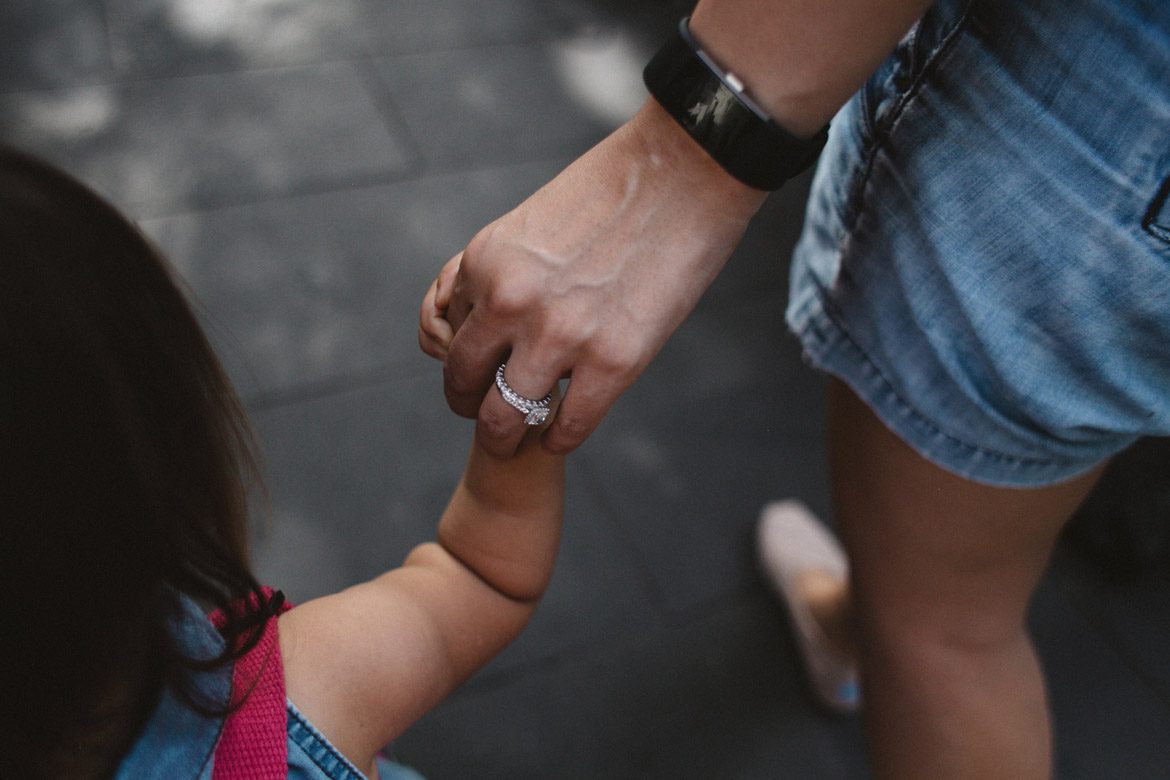By Jessica Rios
Growing up in the 80s, the only time I recall hearing the word stranger was within a common remark made by grown-ups: “Don’t talk to strangers.” I didn’t think much of it. They all loved me; I took it as good advice. Strangers were people I didn’t know, and I didn’t feel a pressing need to talk with them much. Why was I being advised not to talk to strangers? Because of fear. There was a general cultural consensus that it wasn’t safe to talk to strangers.
Thirty years later when my own daughter entered the world, I contemplated one question more than any other: How do I parent from love, not fear?
It’s a gigantic question. There is no one right answer. We each must choose to navigate the terrain of living – and parenting – from love, one moment after another, one experience at a time, honoring our own truth. Yet we cannot choose both love and fear at the same time.
Fortunately, our children present us with an unparalleled invitation to choose love.
Do we want to teach our children to be afraid of people they haven’t yet met, or do we want to teach them to trust their own instincts? Having a fixed rule about not talking to strangers is parenting from fear. When a child is by default restricted from engaging with someone rather than expressing themselves naturally in that moment, the child is being taught fear.
Many adults, many parents, live from this place of fear. And it’s sad. People can be mean and scrappy. I get it. At 11.00am on New Year’s morning I was harassed by a drunk man who reeked of cigarette smoke, hurling out his breath and aggressive questions as he slumped over my seat on the city tram. I was disgusted. But that was the exception. Normally, people are decent. I feel highly confident in my own instinctual sense of whether someone is respectful, and I want my daughter to feel that too. It’s up to me to help teach her that.
We live and learn. Decades pass, parenting styles evolve. Never would I tell my daughter, “Don’t talk to strangers.”
Instead, as we move through life, I support her freedom to interact with people as she desires. A more reserved child, she often sticks to her own space, uninterested in engaging with anybody she doesn’t know. But when she smiles at someone and tells me, “Mama, he smiled at me”, I say to her, “OK, nice, it feels good to smile, doesn’t it?” Or when she asks, “Mama, why did she smile at me?” I say, “Probably because it feels good to smile. And probably because she is kind.” My mind doesn’t run off into a dark fearful forest, afraid she is going to smile at someone and the worst case scenario will erupt. And I guess that’s because I don’t want to live in fear. With children who are effusively outgoing, perhaps there are different ways to guide, or perhaps some of this flavor of guidance still applies.
In the past seven months living in Scandinavia, my daughter has had about 10 encounters with strangers that have built her self confidence muscles. Usually it’s on the bus or train, we’re sitting near someone, and they smile at her. She smiles back, then tells me about it. I give her space to have the experience on her own, without me needing to be part of the smile exchange, or the words they exchange…usually a question about whether she speaks Swedish.
No, I wouldn’t let her go off on the bus by herself at four years old. Yes, I stay close to her anytime she’s in my care because she has entrusted me as her primary guide and I take that role seriously.
Yes, there are creepy-ish moments like yesterday when a man with a belly bulging big out of his pants, Coca-Cola in one hand, smiled at her and she turned to me and said, “Mama why are his eyes like that?” Trusting my own sense of things, I waited a moment to casually look and see what she was referring to. I saw his gray eyes. There seemed to be sickness in them. When we got off the train I asked her, “What did his eyes look like?” She stopped, scrunched up her face, made her eyes beady and constrained, and said, “Like this.” She sees. She senses.
See next page for the rest…











